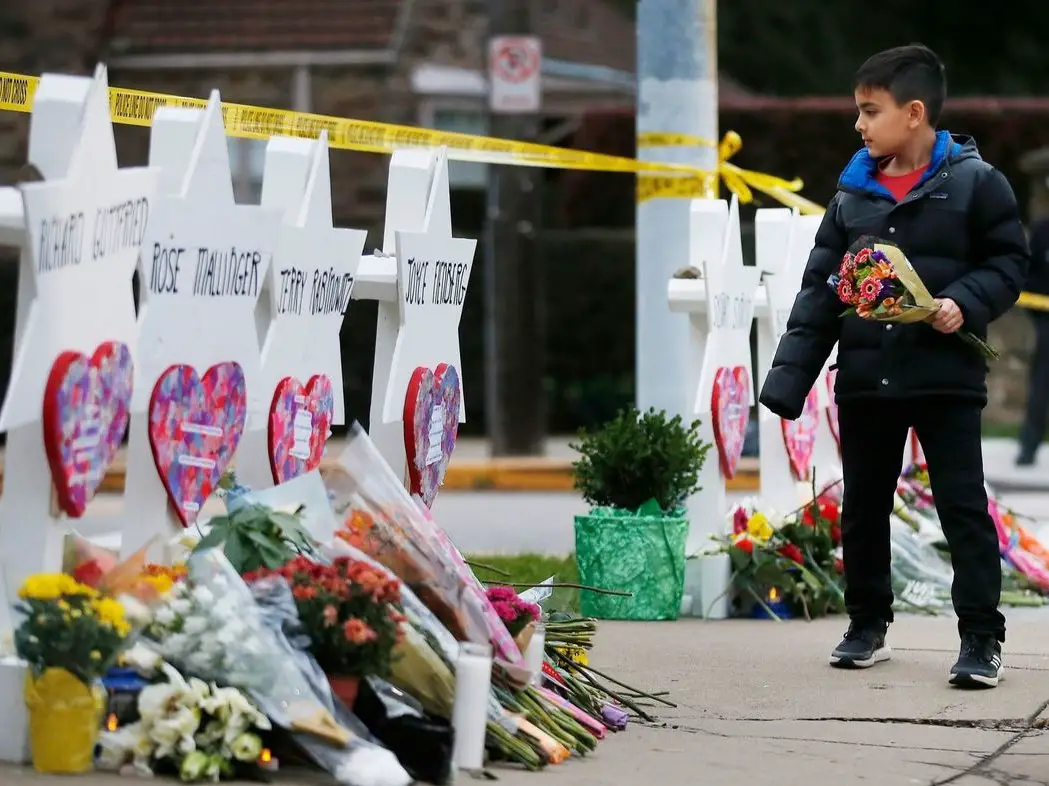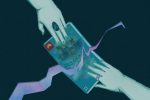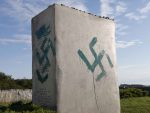The morning of last week’s shootings I woke up to a text from my college. It was an emergency alert. With groggy eyes, I read the message telling me to stay inside because there was an active shooter in my area. I sat up quickly, grabbing my laptop and scouring local news sites to find out more information. Four minutes ago. Seven minutes ago. Two minutes ago. Each news article was scrambling for updates, trying to process this tragedy that happened mere minutes ago.
I joined my roommate at our kitchen table and as soon as I opened my mouth to talk about it, I started crying. I ran to grab the box of tissues from the other room to prevent a river from running through our kitchen. I couldn’t even comprehend how my Jewish peers were feeling.
I wanted to be able to understand the weight of what they felt during this tragedy and to find out how their community would be affected in the future because of this. Over email, I got the chance to dive into the perspectives of two Jewish students, Dan Lapidus, a grad student, and Scott Schneiderman, a senior and a brother of Alpha Epsilon Pi, a Jewish fraternity. They both attend the University of Pittsburgh.
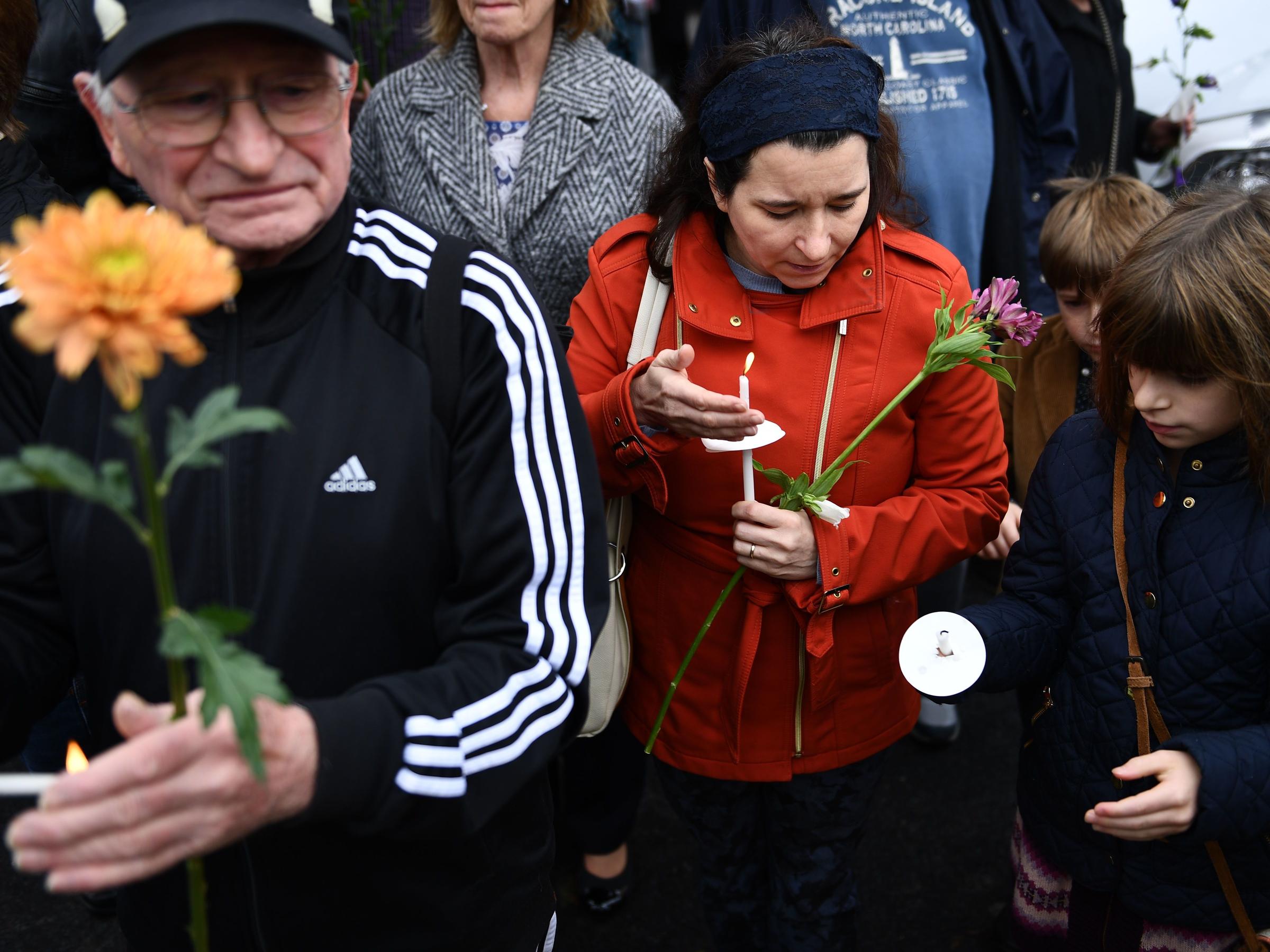
Nicole Andrasko: How did you find out about the shootings at The Tree of Life Synagogue?
Scott Schneiderman: I was in my house in South Oakland when I first heard about the shootings. Actually, I had forgotten to charge my phone the night before, so I didn’t even know what was going on until late that morning. The first thing I remember is my mom calling me. She kept asking me if I was okay, if I was safe. Confused, I kept assuring her that I was safe, and that everything was fine. That was when I saw a flood of notifications from news outlets coming in.
Immediately I marked myself as “safe” on Facebook, because I thought that would be the best way for all of my friends and family to know that I wasn’t at Tree of Life during the shooting. The next few hours became a large mix of responding to people reaching out to me to check in and trying to update myself on the details of the event. All the while I was in shock.
There was a Pitt football game that day and a group of my friends left for it, but I couldn’t leave my room. My mind was filled with thoughts and emotions. It took a long while for me to finally feel even somewhat calm and collected again. When I did, that was when I wanted to contribute to a strong and unified response to the event.
Dan Lapidus: I woke up and saw a Facebook post from a friend of mine about an active shooter situation at the synagogue. She was just asking if her friends were okay. Then I started to see news reports and got a call from my mom asking if I was okay.
NA: Through your observation, how has this event impacted the Jewish community that you are part of?
SS: If you look into the history of the Jewish people, you see centuries of prejudice and oppression. You can talk about the burning of the First and Second Temples, or the Holocaust, or even last weekend’s shooting, and you’d be talking about death and destruction due pretty much entirely to anti-Semitism. And yet, despite such tremendous loss, despite so many people being against our values, the Jewish people have not perished. Why is that? It’s because the Jewish people look out for one another. There is never any separation; Judaism and its people are, and will always be, one united front.
I’ve been to Israel twice now, and both of those experiences were some of the most enriching ones of my life. There are so many amazing aspects of my time there that I could highlight, but there is one thing that I felt really summarizes the companionship of the Jewish community.
One of my trips to Israel consisted of a two-month internship program called Onward Israel, where I lived and worked in the heart of Tel Aviv. During this program, we were given lots of freedom to explore the country and Israeli culture. One weekend, my friends and I wanted to visit Tzfat. Although it is not extremely well known, I think of it as arguably the most holy city in Israel behind Jerusalem. I journeyed there with my friends and we were treated to a Shabbat dinner and a place to sleep by a wonderful family.
Why am I telling you about this? Because before that weekend, this family was a group of complete strangers to us. And yet they opened up their home to us, made delicious food for us and cared for us. This is why I love being Jewish; the openness that we have for each other, and for everyone, is unlike anything I have ever seen in any sort of community before. And if it weren’t for my time at Pitt, I would have never discovered this the way that I did.
That is why I am working with a variety of organizations on campus involved in fundraising and spreading positivity around the city. This includes my fraternity, Alpha Epsilon Pi. After the events of last weekend, we partnered with the other historically Jewish fraternities and sororities on campus to create a fundraiser and have students and faculty write cards to the victims’ families and first responders of the shooting.
In addition, we are having a Holocaust survivor, Shulamit Bastacky, come in to tell her story on Sunday in what will be a powerful event for any and all people on Pitt’s campus. Along with my fraternity, I am working with the local Chabad at Pitt and Hillel on spreading positivity and mitzvahs around campus. We are impacted by this event, but we want to remain strong and together, for our city and for our people.
DL: I think it’s still too early to fully gauge the impact of the shooting on the community here in Pittsburgh. Judaism requires a period of intense mourning that begins after burial and continues for seven days. Then there are further mourning rituals in the year following a death. I think the community is still in this mourning phase and trying to process everything that has happened over the past week. I think people are finding comfort in mourning as a community.
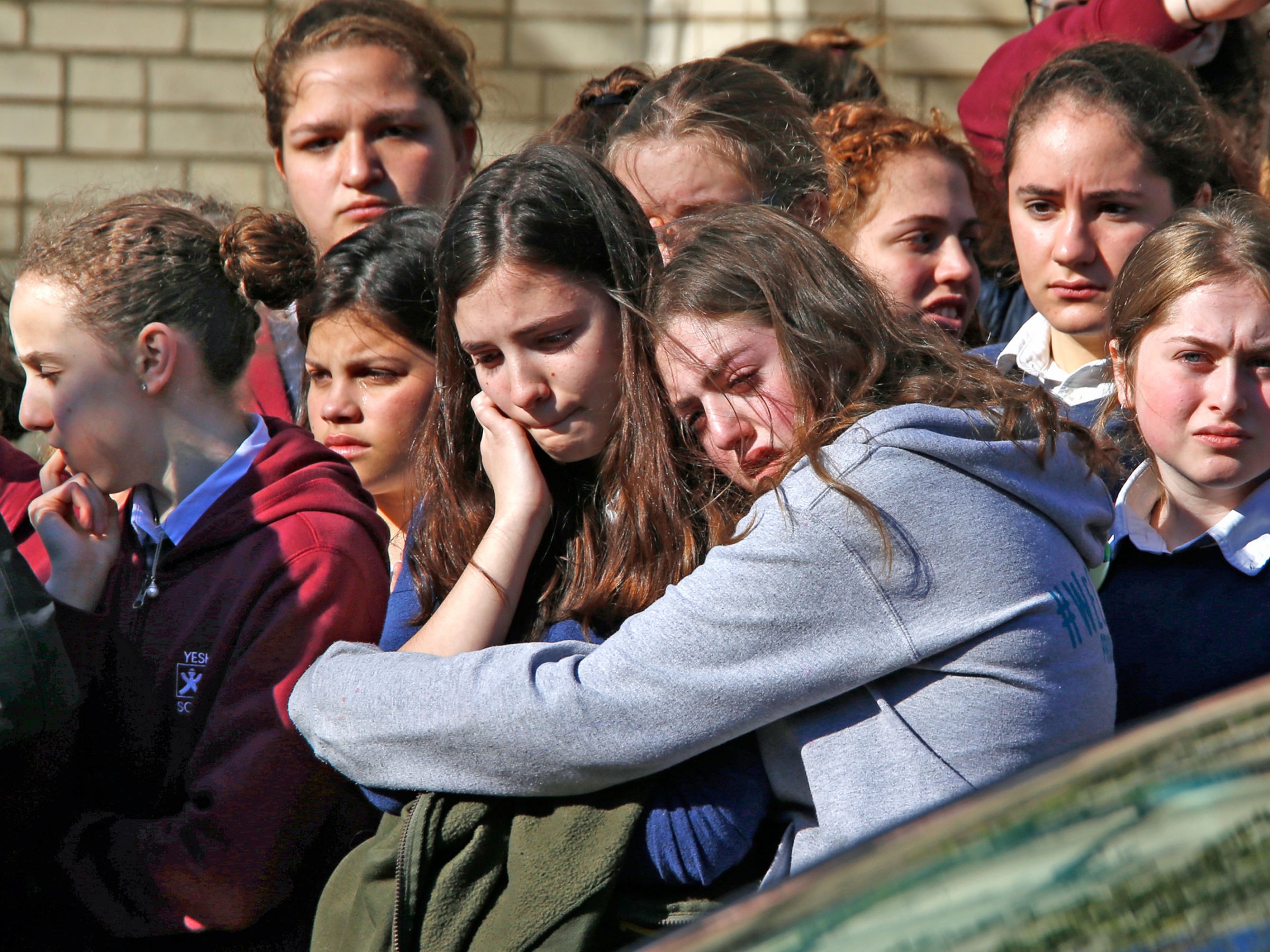
NA: How will this event shape the future of your community?
SS: Obviously this is an incredibly impactful tragedy that has hit the Jewish community, and all of Pittsburgh, very hard. However, I do not think that this should make people feel fearful about going to services. In fact, I plan on going to services in Squirrel Hill tomorrow morning with a group of my Jewish friends.
The best way to fight back from something like the Tree of Life shooting is to embrace our Jewishness even further and show that our culture, and people, will continue to be strong and unified. In addition, we know that anti-Semitism is still prevalent, just like how racism, xenophobia, homophobia and other forms of prejudice still exist today. That’s why there may be more conversations about religious targeting, or that may stay at a constant level; it depends on who you’re talking to.
In terms of fundraising, a friend of mine summed this up well: there’s only so much money that can be donated, and there are only so many posts on social media that can be shared. In the end, what we should be focused on is something that will be impactful for years to come, in response to this tragedy. I’m not saying people will forget what happened, because I don’t expect that; it’s just that I think this level of unity and support should always be present, and shouldn’t just happen in response to such horrific events. Let’s show how much togetherness we can have as a community and as a city. Pittsburgh is already doing this in many ways, and that’s why I’m proud to be a student here.
DL: The Jewish community of Pittsburgh will never be fully whole again. The shooting at Tree of Life will cast a very long shadow over our community for years to come. That having been said, we will get back up, and we will return to our vibrant community life that we have worked so hard to build. We are not going to let a single hateful putz (that’s Yiddish for a stupid or worthless person) destroy the community we’ve worked so hard to build. We will continue to be visibly and vocally Jewish, and we will continue to center that life around Squirrel Hill. However, even as we return to our Jewish life, this shooting will leave a mark on our community, a mark that will fade with time but never fully go away.
NA: Is there anything you’d like to say in particular?
SS: This tragedy is not something that should become overshadowed by political agendas, which made me disappointed in President Trump abruptly coming to Pittsburgh despite many Jewish leaders advising him not to come. That is all I have to say on that manner.
On a lighter note, there were so many people that reached out to me last weekend, and that was something that really helped me muddle through everything that was going through my head then. So if you end up reading this, and you’re one of those people, I’d like to personally thank you. I also encourage everyone to do a good deed to shine some light on this beautiful city during such a dark time.


